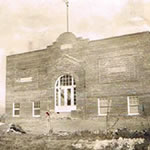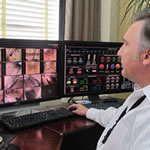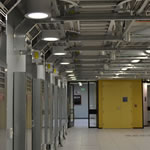Automated alarm systems can provide significant benefits for facility maintenance organizations.

The historic Alta Vista School building was built in 1917. The building was listed on the Colorado State Register of Historic Places in June of 1999 for its significance in the area of education. It recently underwent a significant rehabilitation in order to meet the needs of today's students.

Expert advice for facilities managers on understanding and managing integrated technology and building management systems.
What is hanging over your head?

Dynamic furniture, which can move and convert to serve more than one purpose, is available for a variety of campus spaces.

Effective access control systems include technology, people, policies and training. Here's how those components fit together.

Examples of innovative solutions to difficult problems demonstrate the value of a dedicated team approach to updating campus computing spaces.